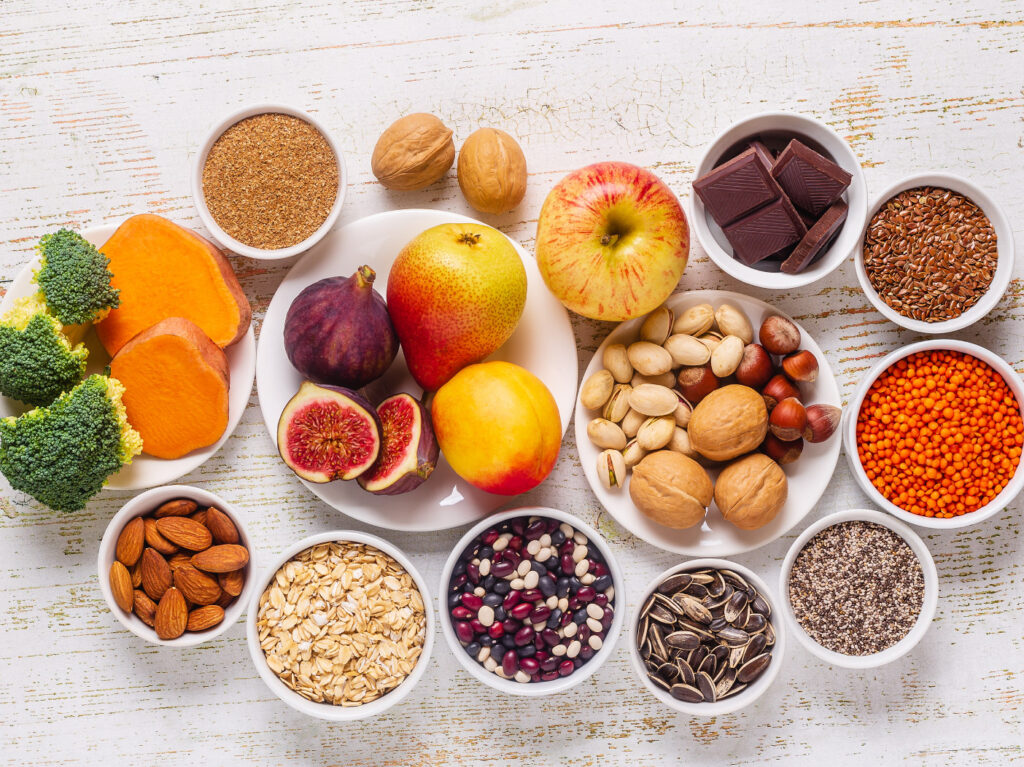Obesity is a multifactorial disease resulting from the excess accumulation of fats in the body tissues. Individuals are said to be obese when their body mass index (BMI) exceeds 30kg/m2. Obesity is a condition that has been proven to cause many serious health risks and diseases. Some most prevalent disorders are type-2 diabetes, non-alcoholic fatty liver disease, atherosclerosis, and certain cancers. Obesity has also been related to higher morbidity and mortality.
Obesity does not occur in a fortnight. It develops gradually and usually occurs due to regular consumption of a high-calorie diet or poor lifestyle choices. A physically active man needs around 2500 calories daily, and an average physically active woman requires about 2000 calories daily. Therefore, exceeding this limit over a long period of time will result in problems like obesity and obesity-related problems later on. Some poor eating habits may include :
- Eating too much
- Eating large portions of food.
- Including a lot of processed and fast foods in your diet
- Drinking too many sugary beverages
- Consuming too much alcohol
Hence, taking control of what you can change prevents the onset of serious health problems like obesity.
GUT MICROBIOME
The human body is host to a wide variety of microbes, including bacterial, fungal, and protozoal families. This group of beneficial microbes is termed as gut microbiome or gut microbiota. Every individual has a different gut microbiome composition, as our gut possesses approximately 400 different species. The key function of an individual’s microbiome is to regulate metabolism, immunity, and protection against pathogen invasion.
The gut microbiome is shaped by multiple factors, including our immune system, hormones, diet, physical activity, and medications. Out of all these, diet is the most important modifiable factor. Eating a diet consisting of energy-dense and highly processed foods, which are also rich in emulsifiers and artificial sweeteners, can compromise our gut lining. This, in turn, allows small particles like bacteria and bits of food to escape into our bloodstream. This affects our immune system, which may cause a condition known as Leaky Gut. A leaky Gut causes inflammation, further putting your body at risk of a range of diseases.
Hence, enhance the diversity of your gut microbiome by adapting these healthy habits.
- Eating a balanced diet
- Exercising daily
- Enjoying a stress-free life

THE GUT MICROBIOME AND ITS ROLE IN OBESITY
Although obesity results from a number of factors, reduced diversity of gut microbiome are one of the most important factors that contribute to obesity. Genetic factors have also been found to be a cause of obesity. However, the most important factors contributing to establishing the link between obesity and gut microbiome are:
- DECREASED DIGESTIVE ACTIVITY
A high-calorie diet is the most common cause of the altered gut microbiome composition, further reducing metabolic activity and resulting in indigestion. Many beneficial bacteria are responsible for nutrient absorption, breakdown, and storage. Lack of these can result in the accumulation of fats in various body tissues. This results in obesity and obesity-related metabolic diseases.
- INCREASED INTESTINAL PERMEABILITY
The gut microbiome plays a very important role in protecting gastrointestinal permeability. It helps regulate the fermentation and absorption of dietary nutrients like carbohydrates, amino acids, fats, etc. An unhealthy diet containing too much fat, sugar, or calories can therefore lead to elevated inflammatory chemicals in the bloodstream and fat tissue. This will ultimately contribute to weight gain.
MICROBIOME OBESITY TREATMENT
Over the past decades, studies have been conducted to learn about the prevalence of obesity and its related metabolic disorders, such as type 2 diabetes. These collectively cause an undue burden on healthcare costs and are the cause of increased morbidity and mortality. Since the human gut microbiome has been identified to play a recognized role in these diseases, factors controlling its modification must also be understood. Some aspects significantly affecting the link between obesity and gut microbiome are:
- MODIFICATION OF YOUR DIET
The dysbiosis or imbalance caused in the composition of gut bacteria is mostly affected by the type of food we eat. Therefore, we must adopt a healthy eating pattern to prevent and treat weight gain. Some food items mandatory in our diet are:
- PROBIOTICS
Probiotics are live microorganisms that augment our gut health. These are present in fermented foods and cultured milk, which, when consumed in sufficient amounts, exhibit favorable properties toward health. Certain foods rich in probiotics are:
- Yogurt and buttermilk– these are fermented dairy products
- Kefir – it is produced by the fermentation of milk by lactic acid bacteria and yeast.
- Kombucha – it is prepared by adding bacteria and yeast to black or green tea.
- Sauerkraut – it is a nutritious fermented vegetable prepared from cabbage
- Tempeh – it is a fermented food made from soya beans
b) PREBIOTICS
Prebiotics serves as food to the probiotics. Therefore, they are responsible for enhancing the diversity of gut microbiota. Some prebiotic foods readily available for consumption are:
- Onions
- Garlic
- Leeks
- Asparagus
- Chicory root
- Bananas
- Barley and oats
- Apples
- Wheat bran
- Eat less sugar and artificial sweeteners
- Avoid the consumption of processed foods as they are high in calories.
- RELAXATION TECHNIQUES
One can enjoy a healthy gut with a healthy mind. Therefore, it becomes important to try keeping yourself stress-free with various yoga and meditation techniques.
To understand the connection between our gut and brain, we need to study the gut-brain axis. The gut-brain axis is a bidirectional link between the central nervous system and neurons present in the gut wall. Hence, it is evident that the stress signals from the brain can impact our digestion. Disrupted epithelial homeostasis can further block the protective layer between our gut and bloodstream, increasing the risk of diseases like obesity.
Therefore, we must learn to control negative emotions like stress, anxiety, and depression. Examples of some calming techniques are:
- Cyclic meditation
- Biofeedback
- Cognitive behavioural therapy
- Gut-directed relaxation training
- Breathing exercises
Similar to our brain, the gut can also play a vital role in calming our brain. Some foods which can help relax our minds are:
- Collagen-boosting foods – bone broth, salmon
- Foods rich in omega-3 fatty acids – salmon and flax seeds
- High-fiber foods – broccoli, oats, sprouts, peas, avocados, pears

- FECAL MICROBIOTA TRANSPLANT(FMT)
Nowadays, researchers are increasingly interested in understanding the connection between obesity and the gut microbiome. This has proved to be helpful in finding a treatment regime to prevent and treat chronic diseases like obesity. Fecal microbiota transplant has emerged as one of these solutions.
In fecal microbiota transplantation, we administer a solution of fecal matter from a healthy donor into the intestinal tract of a recipient. This helps in changing the recipient’s gut microbiome composition and gives health benefits. There are preliminary indications to suggest that FMT has the potential for treating conditions like inflammatory bowel syndrome, obesity, metabolic syndrome, and functional gastrointestinal disorders.
CONCLUSION
This information suggests that the microbial composition can be transmissible, and the manipulation of the intestinal microflora may prove to be a potential therapeutic target to prevent obesity. Therefore, understanding the connection between obesity and gut microbiome encourages us to be mindful of our eating habits and lifestyle choices.
Download on the Appstore
Get it on Google Play



